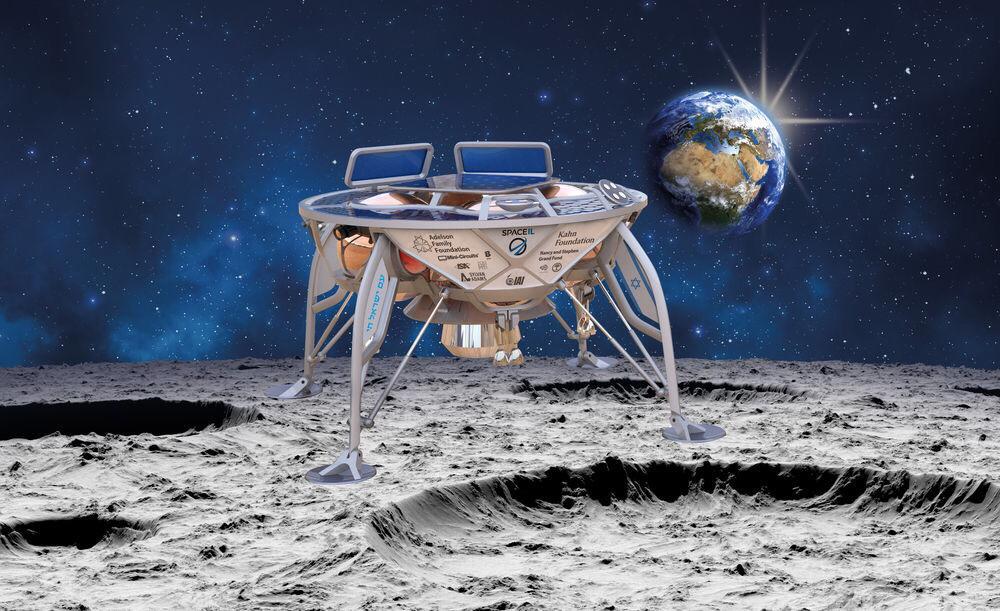To the Moon! SpaceX to Launch Israeli Lunar Lander (and More) on Thursday
SpaceX will launch an Israeli robotic lunar lander during the company's Falcon 9 rocket launch tomorrow (Feb. 21). If the lander succeeds, this will be the first privately funded moonshot to reach the lunar surface.
The lander, called "Beresheet" (in the beginning), will launch at 8:45 p.m. EST (0145 GMT, Feb. 22) from Cape Canaveral Air Force Station in Florida. You can watch the launch live on Space.com courtesy of SpaceX or directly through SpaceX's webcast page or on Facebook via the lander's creators.
The Beresheet lander is a joint venture between Israeli nonprofit SpaceIL — one of the participants in the Google Lunar X Prize, which challenged companies to land spacecraft on the moon — and Israel Aerospace Industries, the country's largest aerospace and defense company. [Israel's 1st Moon Lander: SpaceIL's Beresheet Lunar Mission in Pictures]
While the $30 million Google Lunar X Prize challenge ended with no winner in 2018, several participating companies said they are continuing work on their concepts. The SpaceIL project will be the first of those designs to launch, and Israel now has a shot at becoming the fourth country to land a robotic probe on the moon — after the former Soviet Union, the United States and China.
Roughly 30 minutes after the Falcon 9 lifts off, Beresheet will separate from the rocket into a transfer orbit at an altitude of roughly 37,000 miles (60,000 kilometers). (That's about 150 times the altitude of the International Space Station.) Two minutes after separation, the spacecraft will send out its first communication to its mission control center, in Yehud, Israel.
Then, the spacecraft will make a solo journey to the moon of about two months. During approach and after landing, equipment onboard the spacecraft will measure the moon's magnetic field and study lunar craters.
"Since the establishment of SpaceIL, the task of landing an Israeli spacecraft on the moon has become a national project with educational impact," the Israeli entities said in a joint press release. The project is principally funded by Israeli billionaire entrepreneur and philanthropist Morris Kahn, who is the president of SpaceIL.
Breaking space news, the latest updates on rocket launches, skywatching events and more!
The lander won't be the only payload on tomorrow's SpaceX mission. The main satellite aboard the Falcon 9 is communications satellite PSN-6 (Nusantara Satu), owned by the Indonesian company PT Pasifik Satelit Nusantara.
Also onboard will be an experimental military satellite called the S5, which SpaceX will launch for the U.S. Air Force Research Laboratory. The small sat will operate in geostationary orbit as part of a test constellation of satellites for space situational awareness.
Follow us on Twitter @Spacedotcom and on Facebook.

Elizabeth Howell (she/her), Ph.D., was a staff writer in the spaceflight channel between 2022 and 2024 specializing in Canadian space news. She was contributing writer for Space.com for 10 years from 2012 to 2024. Elizabeth's reporting includes multiple exclusives with the White House, leading world coverage about a lost-and-found space tomato on the International Space Station, witnessing five human spaceflight launches on two continents, flying parabolic, working inside a spacesuit, and participating in a simulated Mars mission. Her latest book, "Why Am I Taller?" (ECW Press, 2022) is co-written with astronaut Dave Williams.


